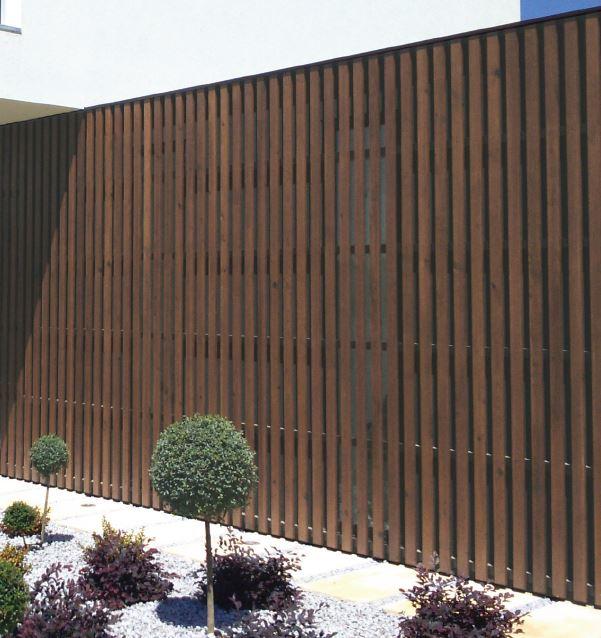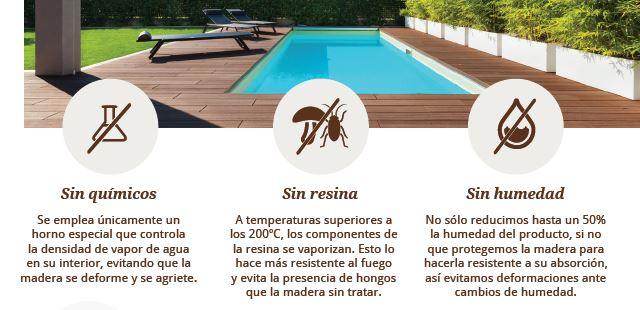Thermopine: the most environmentally friendly material
One of the major advantages of Finsawood's Thermopine is its sustainable nature, as the heat-treating process avoids the application of chemical products.
The consumption of wood products contributes to the maintenance and increase of forests in a positive manner, because for every m3 of wood that is used instead of another material, the emission into the atmosphere of a total of 2 tons of CO2 can be avoided.

Thermopine: wood that is 100% wood
But not all woods are the same. Although wood is a natural material that is sustainable in nature, when it is used in construction it is generally subjected to different processes aimed at increasing its resistance and its useful life. As part of these processes, a series of chemical products are applied in order to kill the biological agents in the wood: the fungi that live in its interior and the xylophages, which are the insects that feed on it.
Thermopine is the first wood that is 100% environmentally friendly, as it contains no traces of chemicals, due to the heat-treating process. This treatment subjects the wood to a combination of pressure, temperature and water vapour, eliminating the need for any external elements, as in the case of autoclaved wood.
The heat treatment process
The process takes place in a special oven: a chamber with an oxygen-free atmosphere. Here, the wood is subjected to temperatures of up to 240ºC for a long period of time: up to 100 hours. The temperature and the time vary, depending on the species of wood and the dimensions of the pieces.
The key to preventing these high temperatures from carbonizing the wood lies in the balance between atmospheric pressure and water vapour. It is as if the wood undergoes a fossilization process, and only the wood fibres remain once it is complete. In addition to xylophages and fungi, any residual moisture and resins that it may contain are eliminated.

The importance of the absence of chemicals
We use an entirely natural process with zero chemicals to remove everything that would affect the product’s durability, leaving behind a structure that will last longer. This makes it an ideal treatment for exterior cladding, both for decking and for walls and ceilings.